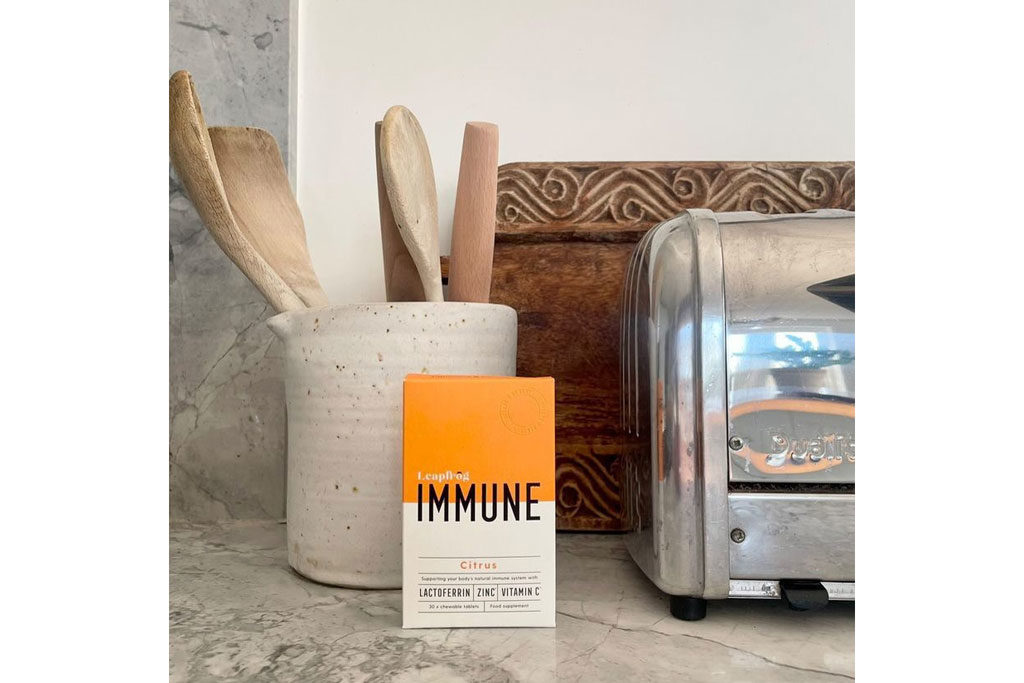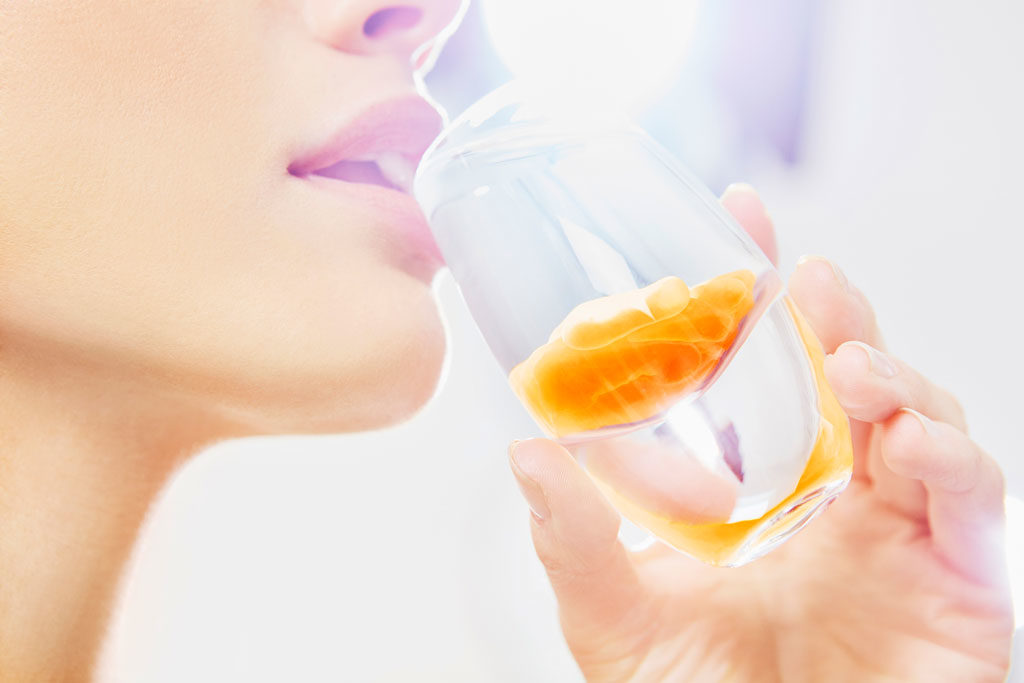How to Help Your Immune System for Optimum Health in 2022
By
3 years ago
Start as you mean to go on this year

Get your immune system in great working order with this expert advice.
Optimise Your Immune System This Winter with Dr Alex Ruani

Dr Alex Ruani
Our health and wellbeing has never been such a topic of conversation as it has in the last couple of years. Within this, another key subject that has often been raised is that of immunity and the immune system, and how it works – and how we can help ours to work as efficiently and effectively as possible. We caught up with Dr Alex Ruani, doctoral researcher in nutrition science education at University College London and Chief Science Educator at The Health Sciences Academy, to discover how we can all help our immune systems to work better.
‘Besides helping us fight infections, our immune system is essential for wound healing and injury recovery, for healthy ageing, and for reducing the risk of diseases like cancer,’ explains Dr Ruani. ‘You can think of your immune system as your body’s own armed forces, constantly training to defend you against both foreign and domestic threats. Foreign threats include pathogens entering the body, like the Covid-19 virus. Domestic threats include mutated body cells that may become pre-cancerous, so your immune system is one of your main lines of defence to reduce cancer risk.’
Colds and respiratory tract infections also increase in the cold winter months, which is why protecting your immune system in these months is more important than ever. Dr Ruani points out that there are multiple factors for this: spending more time indoors with poor ventilation, which increases transmission risk; wearing more clothes which reduces the essential production of vitamin D by the skin (more on this in a bit); dust and lower temperatures drying out the moist and functional muscosal barrier that works to lessen the viral load entering the body, and decreasing the required flow of mucins that escort viral particles and other pathogens out of our airways.
But, although there is no such thing as ‘boosting your immune system’ (a hyperactive immune system would in fact make you feel more ill) there are some things you can do to support your immune defences and ensure they’re in the best shape to fight against any coughs, colds and viruses that come their way.
Cut out bad habits
‘The first step to support immune function is to minimise the things that make it weaker,’ says Dr Ruani. These include lifestyle habits like smoking, excessive alcohol consumption, a lack of quality sleep (something we’ll revisit later), and poor nutrition.
‘Regularly consuming too much salt, too much alcohol, and too many calories may weaken our immune function,’ she continues. ‘More calories doesn’t always mean more essential micronutrients and good immunity. Many of us are ‘overfed’ yet malnourished.’
Dr Ruani recommends three key lifestyle changes that will ensure your immune system is working properly:
– Minimising environmental and dietary load in the body so as to keep your immune system strong. You can do this, for example, by limiting alcohol intake.
– Ensuring you get sufficient, quality sleep and manage our stress levels. You can do this by adopting a sleep routine and learning coping skills to help us become more resilient.
– Adopting a nutritious diet that helps us achieve a healthier body weight, supports gut health, and mitigates nutrient deficiency risks. We can do this by including more plant foods, which are rich in fibre, prebiotics, vitamins and minerals, fermented foods like a probiotic yogurt, and omega 3s from oily fish and flaxseeds.
Eat the right foods
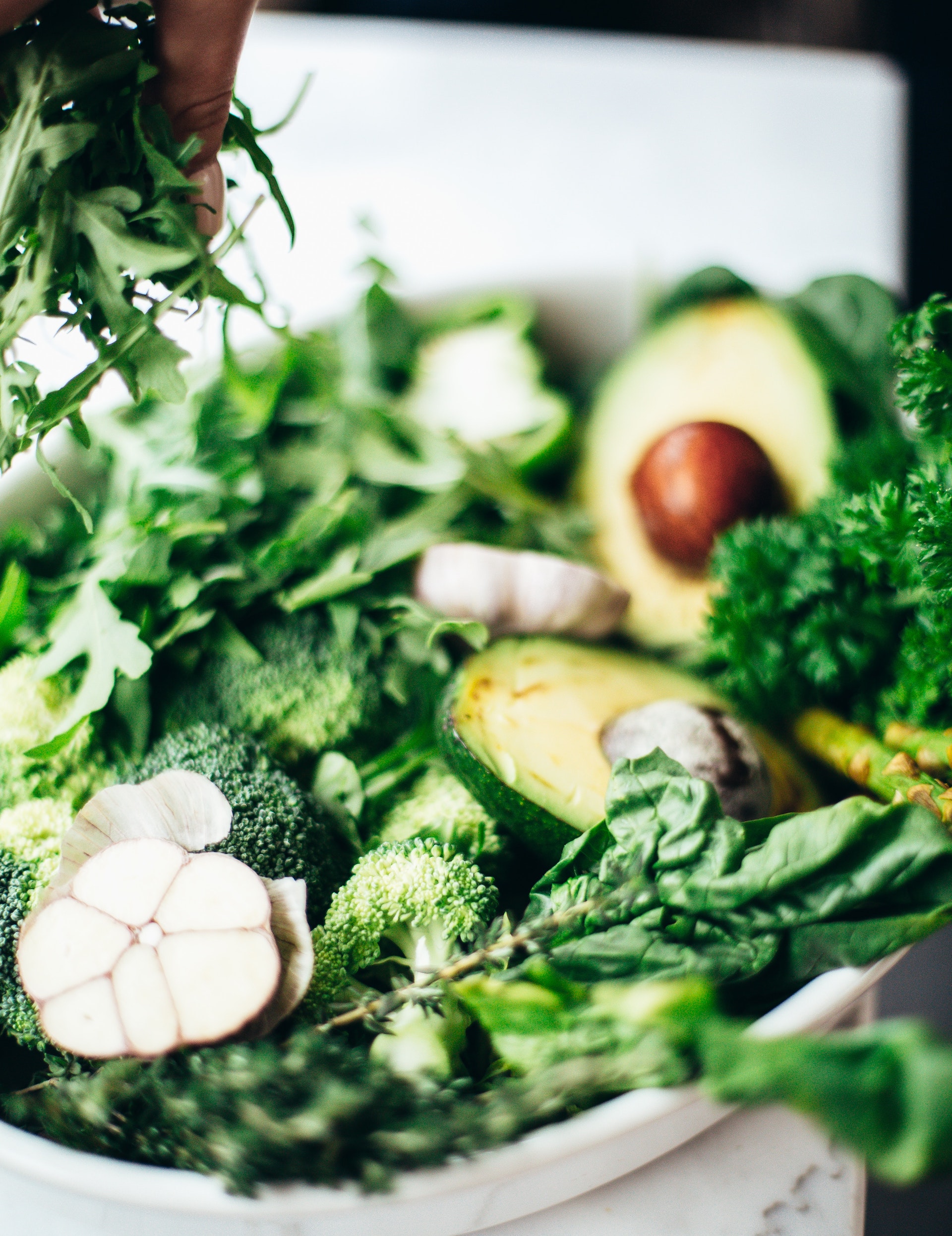
While specific foods and supplements aren’t a magic wand to make us instantly immune, a nutritious diet can help. But, according to Dr Ruani, ‘nutrients work synergistically and not in isolation. This means it’s important to look at the whole diet, rather than isolated pieces of it.’
‘Besides fibre, prebiotics, and probiotics, to support immune function we also need adequate protein, fibre, omega 3 fats, vitamins D, C, B, A, E, and K, minerals like iron, calcium, selenium and zinc, and antioxidants such as flavonoids, among many others.’
Here are some key nutrients our immune system needs, and the food sources where you can find them:
- Irom: Pumpkin seeds, parsley, almonds, prunes, cashew nuts, raisins, Brazil nuts, walnuts, dates, pork, cooked dried beans, sesame seeds, pecan nuts.
- Vitamin C: Peppers, watercress, cabbage, broccoli, spinach, cauliflower, strawberries, lemons, kiwi fruit, peas, melons, oranges, grapefruit, limes, tomatoes, parsley.
- Vitamin D: Vitamin D3 found in herring, mackerel, salmon, sardines, oysters, cottage cheese, eggs, fortified cereals, and fortified vegan milks. Vitamin D2 found in sunlight-fortified mushrooms.
- Vitamin A: Retinol from beef liver, veal liver, milk, cheese, and yogurt. Beta-carotene from carrots, watercress, cabbage, butternut squash, sweet potatoes, melons, pumpkin, mangoes, tomatoes, broccoli, apricots, papayas, tangerines.
- Vitamin B6: Wheatgerm, tuna, salmon, turkey, red kidney beans, cauliflower, peppers, bananas, squash, broccoli, asparagus, Brussels sprouts, lentils, eggs.
- Zinc: Oysters, ginger root, lamb, pecan nuts, dried split peas, haddock, green peas, shrimps, turnips, Brazil nuts, egg yolks, whole wheat grain, rye, oats, peanuts, almonds.
- Omega 3 Fatty Acids: Mackerel, swordfish, marlin, fresh tuna (not canned), salmon, sardines, egg yolks, algae. The body can make its own EPA and DHA from ALA found in flaxseeds, walnuts, chia seeds, shelled hemp seeds, and sunflower seeds.
- Flavonoids: Teas (green tea, black tea, oolong tea), citrus fruits, blueberries, strawberries, cherries, spinach, apples, tomatoes, legumes, red grapes, cacao, soy and soy-based products.
Prioritise vitamin D
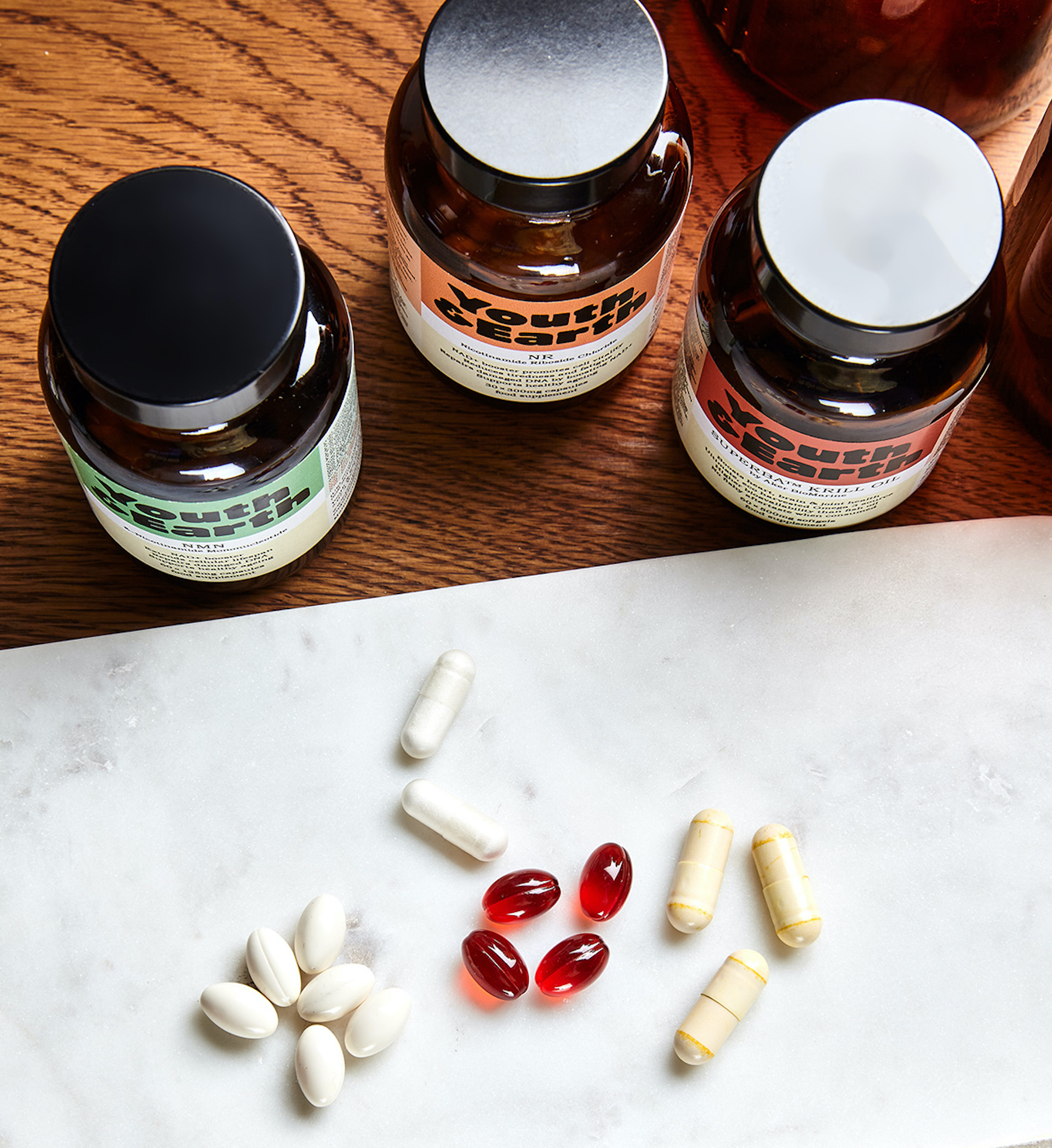
Supplements from Youth & Earth
If you feel you need to supplement with your diet, British brand Youth & Earth makes high-performing products.
But a supplement that Dr Ruani recommends for everyone is vitamin D, which many of us don’t get enough of in the dark winter months when we’re either inside, or wrapped up in many layers. The skin makes vitamin D from direct sunlight exposure (UVB at 290-315nm) lasting longer than 20 minutes.
Dr Ruani advises that we source vitamin D directly from foods such as oily fish, cottage cheese, eggs, fortified cereals, and fortified vegan milks, as well as take a vitamin D supplement.
‘The advice from Public Health England is that everyone should take a daily supplement containing at least 10mcg of vitamin D,’ says Dr Ruani. ‘Although toxicity is rare, there is a upper tolerable limit set in the UK and Ireland, where vitamin D supplementation shouldn’t exceed 75mcg a day.’
Take a probiotic
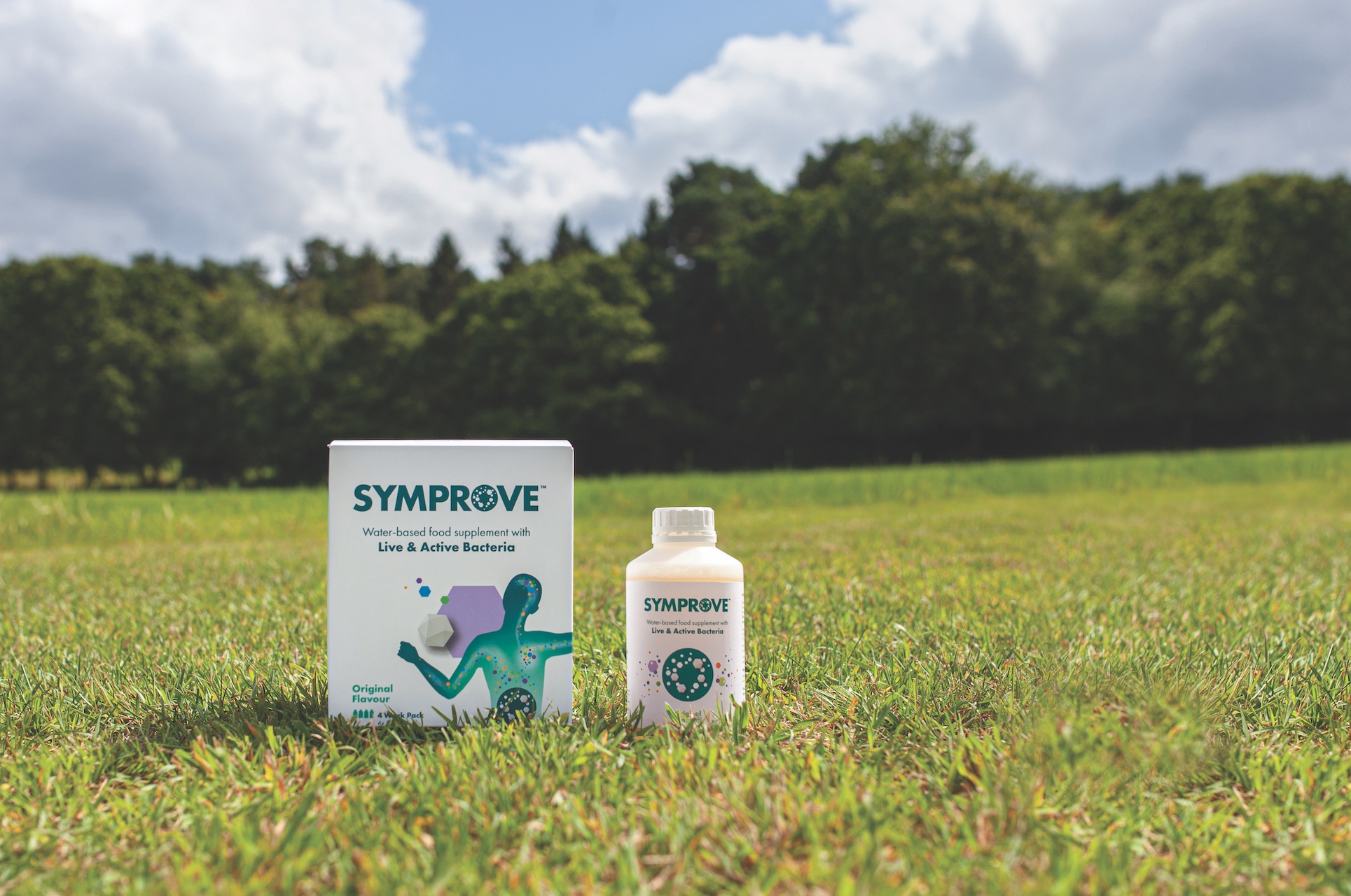
Symprove probiotic to improve your gut health
In recent years, our understanding of how our gut health is linked to our overall physical – and potentially mental – health has grown hugely. ‘We cannot ignore gut health, since at least 70% of our immune function is hosted in the gastrointestinal system, so there’s a lot of research being done in relation to prebiotics and probiotics in the context of immune health,’ explains Dr Ruani.
Probiotics beneficially interact with cells of the immune system, like dendritic cells, and improve T-cell function. You can source probiotics (live organisms) from food such as natural yogurt, soft cheese, tempeh, kefir, sauerkraut, miso, and kimchi. However, you can also take a supplement if you feel you need to. British-based Symprove is a live bacteria supplement that supports gut health.
Prebiotics are substances which feed good gut bacteria, such as fibre. In the gut, fibre is broken down by gut bacteria into short-chain fatty acids that signal immune cells. So if our gut bacteria isn’t getting enough fibre to produce these short-chain fatty acids, our immune cells may not be functioning at their best. Fibre also supports the gut mucus barrier, which is host to antimicrobial peptides and immunoglobulins.
Key food sources of fibre include: wholegrains (oats, rye, quinoa, brown rice), root vegetables (carrots, sweet potatoes, squash), allium vegetables (onions, garlic, shallots), fruits (apples, pears, banana), cruciferous vegetables (broccoli, brussel sprouts), seeds (flaxseeds, hempseeds), and legumes (red beans, lentils).
Sleep is crucial

Cornish Bed Co makes traditional Victorian beds for a great night’s sleep
Finally, an essential thing you can do to ensure a strong immune function is make sure you’re getting enough sleep.
‘Restful nights also mean a restful gut and a strong immune function,’ says Dr Ruani. ‘Poor sleep quality and quantity can have a detrimental effect on our gut health and our immune health. Put simply, even if your diet is impeccable and optimally includes immune-supporting nutrients, prebiotics and probiotics, poor sleep on the daily might cancel out those dietary benefits.’
According to Dr Ruani, our immune cells memorise invading antigens mostly during deep sleep, so if the body comes into contact with the invader again it can respond to it more effectively. And during deep sleep the levels of the hormone prolactin increase, prompting the transformation or immature immune cells into mature cells. It’s crucial that immune cells are mature, allowing them to properly fight off foreign invaders.
‘Being sleep deprived may lead to lower prolactin levels and fewer mature immune cells, making us less able to fight off foreign bacteria and viruses and increasing our risk of illness,’ she concludes.
For the best chance of getting a great night’s sleep, upgrade your bedroom with our handy guide, featuring brilliant British brands.
With thanks to Alex Ruani, Chief Science Educator at The Health Sciences Academy and UCL doctoral researcher




